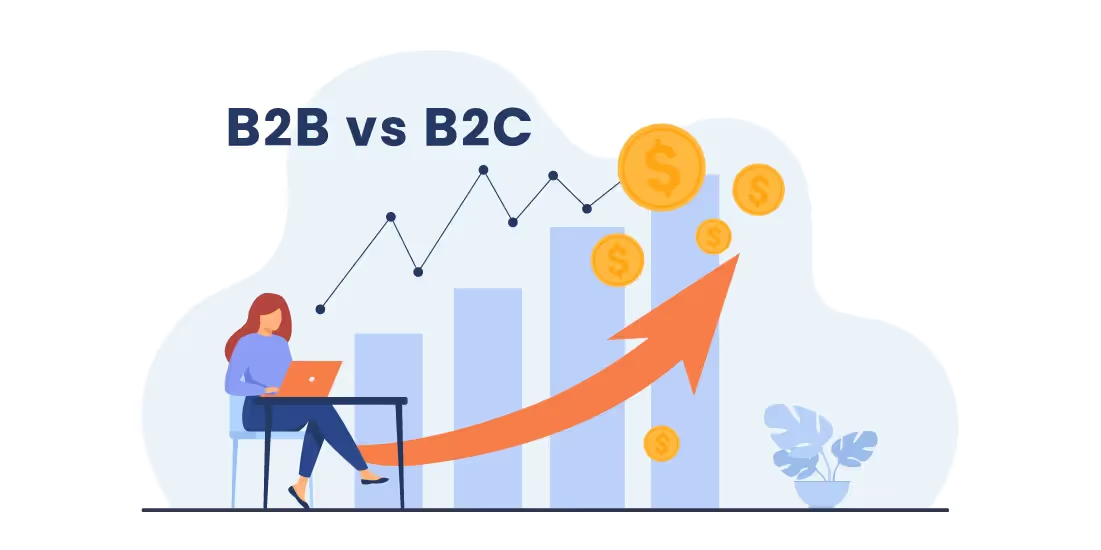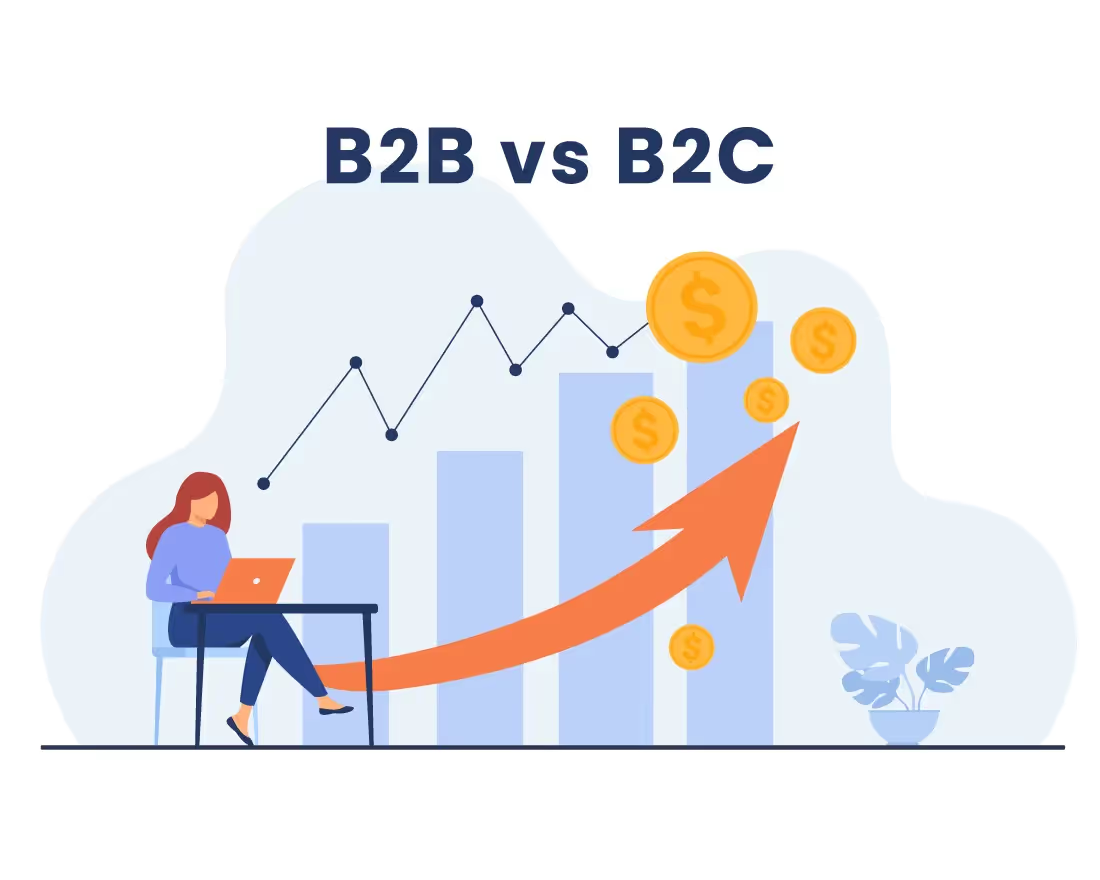
With so many available sales strategies, how can a sales manager even know where to begin? The first step in choosing an effective sales model is identifying the market. To whom are you selling? Will your sales team be working with businesses or marketing to consumers?
While certain strategies will apply to either market, there are important differences between B2B sales and B2C sales that every successful sales manager needs to know.
What are B2B sales?
So what exactly is a B2B sales strategy? Business-to-business sales occur when companies sell products and services to other companies. When businesses purchase everything from office supplies to food service to legal representation, it falls under the B2B sales umbrella.
When a company purchases the merchandise it will later sell to its own customers, the transaction is also a type of B2B sale. While their brands are often lesser known than those sold to consumers, many companies primarily exist to do business with other organizations.
What are B2C sales?
What are B2C sales? Business-to-consumer sales are just what their name implies: sales activities that occur with a company as a seller and an individual consumer as the buyer. Many of the world’s most popular brands market to consumers.
In fact, any purchase made by a person for non-business use would be considered a B2C sale. This would include everything from buying groceries at the supermarket to ordering household goods online, buying a haircut or even a new car.
What’s the difference?
What is the difference between B2B and B2C sales? While the B2B and B2C share some similarities – they both center on selling to target customers, for example – there are important differences between the two sales models.
When engaged in B2B sales, teams are likely working with business leaders or professional buyers whose life’s work involves getting the best possible deals from salespeople. A different strategy is required than when selling to a soccer mom at the grocery store. The two types of consumers have different motivations, goals and even purchasing power.
Other common differences between B2B sales and B2C sales include:
- The B2C market includes a much larger population of potential customers. Obviously, there are a lot more people than there are businesses.
- Because buying decisions at a business are rarely made by an individual, the B2B sales funnel consists of a much longer process than the B2C sales funnel, where the customer is usually the sole decision-maker when it comes to buying a product or service.
- Sales teams are more likely to make an effective emotional connection with customers in the B2C sales realm. Consumers are more likely to make purchasing decisions at the spur of the moment, moved by an emotional sales pitch. B2B clients, on other hand, are more likely swayed by logic and reason when making informed business decisions.
B2B vs. B2C marketing strategies
How do B2B marketing strategies differ from B2C marketing strategies? The primary difference between B2B and B2C marketing strategies is how sales teams communicate with customers. B2B marketing involves building long-term relationships with customers and proving the potential for a positive return on investment. B2C marketing, on the other hand, focuses on offering simple solutions and enjoyable content, inspiring consumers to make a single purchase.
What are a few specific ways that B2B marketing differs from B2C marketing? Marketing strategies within the two sale models vary in the following ways:
- Different approaches to relationship building with customers – B2B customers typically require a more hands-on relationship than a B2C buyer, one consisting of more frequent communication and multiple meetings. In contrast, consumers can be loyal to brands but care very little about interaction with the sales rep selling a product.
- Length of buying cycle – The time required for a consumer to make a purchase can be dramatically shorter than the length of a B2B buying cycle, primarily because B2B clients typically must get approval from multiple parties after presenting the buying options. Understanding the varied buying cycles can help marketing teams build better strategies.
- Target audiences with different motivations – B2B customers respond to different types of messages than their B2C counterparts. A B2B customer will be looking for expertise, facts and data to support their purchasing decision. Consumers, on the other hand, often react to advertisements that inspire an emotional response.
- Effective communication – Because B2B audiences and B2C buyers respond to different marketing strategies, it’s vital to communicate with them appropriately. While a consumer’s mind might be set at ease by casual language, for example, informal communication like slang might be inappropriate in a professional environment. When communicating with B2B clients, be sure and emphasize the return on investment when presenting your value proposition. When marketing to consumers, however, keep the tone simple and relatable.
- Advertising and content formats – The types of advertising and content marketing most effective for a B2B audience varies from that best used for B2C buyers. B2B customers want all available information, and a sales presentation is a great way to provide all the details. B2B sales and marketing teams can rely on PowerPoint-alternative presentation software tools like Beautiful.ai to make creating effective sales presentations quick and easy. Meanwhile, a B2C audience responds better to entertaining content. B2C sales teams can look for fun ways to present their information, and they should be sure any sales presentations include plenty of engaging images, videos and animations.





.avif)


